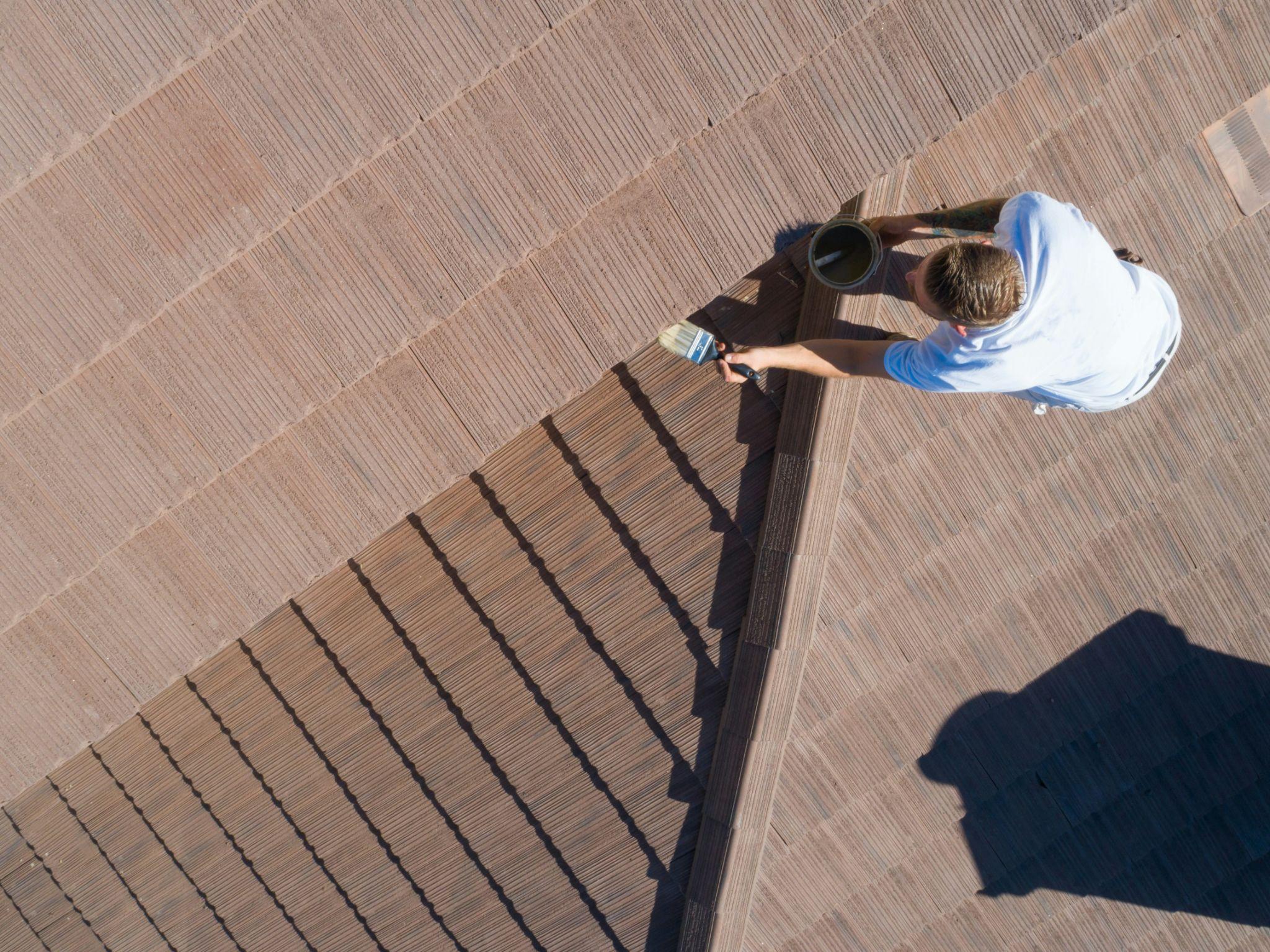Roofing remains one of the most important components of home protection and long-term property value. In 2025, homeowners are researching roofing more than ever before due to rising material costs, unpredictable weather trends, and continuous improvements in building materials. Whether you’re upgrading an older roof, preparing for a renovation, or planning a new home build, understanding the fundamentals helps you avoid costly mistakes and make confident choices.
This comprehensive roofing FAQ gathers the key questions homeowners ask today, offering clear guidance before starting any roofing project.
Roofing Basics Every Homeowner Should Understand
What Are the Most Common Roofing Materials?
Asphalt shingles remain the go-to material for most homeowners thanks to their affordability and wide range of styles. High-quality asphalt shingles usually last between 20 and 30 years. Metal roofing continues to grow in popularity because of its durability, energy efficiency, and long lifespan, often 40 to 70 years. Tile roofing, including clay and concrete tiles, offers excellent longevity but typically requires a well-engineered structure due to its weight. Composite and synthetic roofing options are modern alternatives that replicate premium materials while offering strong durability.
Choosing the right material comes down to lifespan, climate, maintenance preferences, and budget.
How Long Does a Roof Usually Last?
A roof’s lifespan depends on the material, quality of installation, regional climate, and overall maintenance. Asphalt roofs last around two to three decades, metal roofs can last over 50 years, and tile or slate roofs can last several decades or more. Harsh weather, poor attic ventilation, or improper installation can shorten any roof’s expected life, so routine inspections are essential.
How Do I Know If My Roof Needs Repair or Replacement?
Common indicators include missing shingles, curling edges, sagging sections, discoloration, granule loss, and attic leaks. Repairs are usually sufficient for small, isolated issues such as a damaged area caused by wind. Full replacement is recommended for aging roofs with widespread damage or when structural issues are present beneath the roofing surface.

Roofing Cost FAQs: What Impacts Price in 2025?
How Much Does a New Roof Cost Today?
In 2025, a new roof typically ranges from $10,000 to $30,000 depending on the size of the home, material selection, roof complexity, and local labor rates. Premium materials like metal or tile roofing naturally increase the investment. Since every home is different, a detailed inspection ensures accurate pricing.
Why Do Roof Prices Vary So Much?
Factors that influence roofing cost include:
• labor and installation time
• tear-off and disposal requirements
• underlayment type
• roof pitch and accessibility
• number of penetrations like vents, chimneys, or skylights
• required structural repairs
• regional building code requirements
Your chosen material is also one of the biggest cost drivers, especially for roofing systems requiring specialized installation.
Can I Repair Instead of Replacing My Roof?
Yes, repairs are often appropriate for minor issues. However, older roofs with widespread wear or recurring leaks usually benefit more from full replacement. An inspection from a qualified roofing professional helps determine the most cost-effective approach.
Installation FAQs: What to Expect From a Roofing Project
How Long Does Installing a New Roof Take?
Most residential roofing projects take between one and three days. Larger homes, complex designs, or unexpected structural repairs may extend the timeline. Installation typically involves inspection, tear-off, underlayment installation, placement of new materials, flashing, and cleanup.
What Should Homeowners Ask Before Hiring a Roofer?
Key questions include:
• Are you licensed and insured?
• What warranties do you offer?
• What materials do you recommend and why?
• How long will installation take?
• How will you protect my landscaping or property?
Homeowners often rely on reputable local contractors such as Cobex Construction Group to ensure proper installation and long-term performance. Experience, licensing, and transparency are essential when choosing the right roofing partner.
Do I Need to Leave the House During Installation?
Most homeowners stay on-site, though noise can be considerable. Households with pets, infants, or individuals sensitive to sound may prefer to be away during working hours. Contractors may also require driveway or yard access for equipment.

Roofing Maintenance FAQs: How to Extend Roof Life
How Often Should I Inspect My Roof?
Homeowners should inspect their roofs twice a year—typically in spring and fall—and after major storms. Attic inspections are equally important, as moisture, mold, or insulation issues often signal roofing problems not visible from the exterior.
What Maintenance Prevents Major Roofing Damage?
Simple maintenance tasks such as removing debris, cleaning gutters, checking flashing, ensuring proper attic ventilation, and trimming overhanging branches can significantly extend roof life. Small actions reduce moisture retention and prevent long-term deterioration.
Do Warranties Cover All Roofing Issues?
Most roofing systems include two warranties:
• Material warranty – covers manufacturing defects
• Workmanship warranty – covers installation issues
Warranties may exclude damage caused by lack of maintenance, ventilation problems, or severe weather. Reading the fine print helps prevent misunderstandings later.
Climate and Energy-Efficiency FAQs (2025 Trends)
What Roofing Materials Are Best for Hot Summer Climates?
Materials like metal roofing, cool shingles, and reflective coatings are excellent choices for warm climates. Light-colored roofing and modern reflective technologies help reduce heat absorption, improving indoor comfort and lowering energy bills.
Are Solar-Ready Roofs Worth It?
Many homeowners choose roofing systems designed for future solar installation. Selecting solar-friendly materials and underlayments during a roof replacement helps avoid additional work later if you decide to install solar panels.
How Does Roofing Affect Home Value and New Construction?
A well-planned roofing system influences curb appeal, energy efficiency, and long-term structural stability. For homeowners planning significant renovations or designing a new home, partnering with a knowledgeable custom home builder helps ensure that the roofing system is properly engineered and integrated into the home’s architectural design. Roofing decisions made during construction have long-lasting effects on durability and cost efficiency.

Insurance and Storm Damage FAQs
Will My Insurance Cover Roof Damage?
Insurance typically covers sudden and accidental damage—such as hail, falling branches, or strong windstorms. Age-related deterioration, improper maintenance, or gradual wear and tear are usually not covered. Photographing any damage immediately helps with claim approvals.
Should I File a Claim or Pay Out of Pocket?
If the repair cost is close to your deductible, paying out of pocket may be preferable. Frequent claims can raise premiums. Roofing professionals can help assess the extent of the damage to guide your decision.
Myths, Misconceptions, and Common Homeowner Questions
Is a Metal Roof Really Noisier?
When installed with proper underlayment and insulation, metal roofs are no louder than traditional roofing materials. Modern installation methods significantly reduce noise.
Can I Install a New Roof Over an Old One?
In some cases, yes. However, installing a new roof over an existing one can trap moisture, hide structural problems, and reduce the lifespan of the new roof. Some local codes also limit the number of layers allowed.
Do Dark Roofs Always Make Homes Hotter?
While dark colors traditionally absorb more heat, many modern roofing materials now include reflective granules that help lower heat absorption. Energy efficiency is influenced more by roofing technology than color alone.

Final Checklist: Questions to Ask Before Any Roofing Project
• What materials best fit my home and climate?
• What warranties are included?
• How will ventilation be addressed?
• How long will the project take?
• What is the cleanup plan?
• Are there local code requirements I should know about?
• What is the total cost including tear-off and disposal?
Being prepared ensures a smooth and predictable roofing experience.
Conclusion: Making Better Roofing Decisions in 2025
Your roof protects your home, improves energy efficiency, and contributes to long-term property value. Whether repairing a small issue or planning a full replacement, understanding the fundamentals helps ensure better results. With the right materials, proper maintenance, and a reliable contractor, your roof can serve you well for decades.


